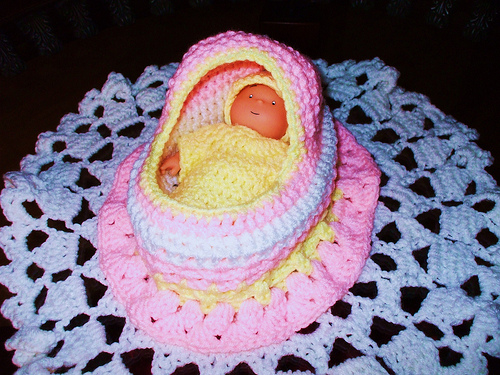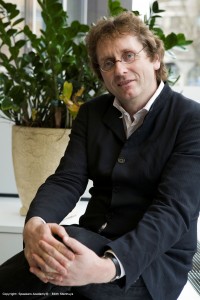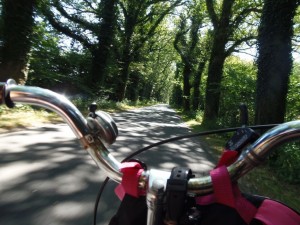Search Results for Tag: environment
Pushing the pedals for the environment
Over four weeks, from July 21 to August 17, members of the youth organization of the World Wildlife Fund (WWF) in Germany will be cycling across the country and covering hundreds of kilometers to raise awareness about climate and environment protection. Some of the young participants will be writing for GLOBAL IDEAS from on the road with their impressions and experiences. First off, 19-year-old Denis Mesterharm, a keen environmentalist. He had to cope with a broken bike, scorching heat and an uphill ride – and all that in just the first week.
Hello everybody and welcome to the first blog article about the “WWF-Jugend Fahrradstaffel”. First, off, what exactly is a “Fahrradstaffel?” Literally translated, it’s a bicycle relay. Members of the World Wildlife Fund’s youth organization are riding their bikes from Flensburg (in northern Germany near the border to Denmark) to Freiburg (in the south of Germany near the Swiss border). It’s a 2,210-kilometer route. The aim is to raise awareness about the need to protect the climate and to promote the environmental benefits of pushing the pedals rather than taking the car, especially for short distances in daily life.
This year, there are two routes. The West route goes through the cities such as Hamburg, Hanover and the former capital Bonn. The eastern stretch will take us to Leipzig, Erfurt and the capital Berlin. Both routes will converge in Frankfurt and end in Freiburg.
And now, to the first week where I took part. The first five stages were in Schleswig-Holstein, the northernmost state in Germany. Flensburg, the start city, is located on the “Flensburger Förde,” a fjord of the Baltic Sea. The first day was catastrophic. My bicycle broke down after just a few kilometers. The bike tube exploded and so I had to cancel the first stage.
But day two was better. From Eckernförde to Preetz via Kiel –capital of Schleswig-Holstein – that was the route. It was a bright sunny day without any problems. So I started Day 3 happily to this stage. Now I had to ride to the Hansa League City, Lübek. But this stage was more difficult than the last one. There were many more hills and lakes that made the route over 60 kilometers long. Normally I’ve had to ride 45-50 kilometers each day. Besides, it was hugely hot on the day and I forgot to take enough to drink with me.
Luckily, that problem didn’t present itself the next day because the route from Lübek to Büchen involved cycling through a big forest for most of the way and I had enough to drink with me.
But on day five, I forgot my camera at home, so I wasn’t able to take any photos on the way to Hamburg. Fortunately, the stretch wasn’t that scenic because much of it led through the city.
Day 6 was my last day on the road. From Hamburg to Lüneburg. On this stage, I crossed the Elbe river on a ferry at “Zollenspieker.” It’s an ancient customs post in Hamburg dating all the way back to the Middle Ages.
Upon arriving in Lüneburg, I handed over the WWF baton, some bicycle flags and one big flag, to the service point of the German railway (Deutsche Bahn). They were to hand it over the next day to the next member of our bicycle relay who finished the stretch. Thanks for reading this blog and watch this space for further entries from other bloggers from the bike relay.
“No need to apologize for being on this planet”
Author: Kerstin Schnatz

Michael Braungart’s concept of zero waste is based on “cradle to cradle” rather than “from cradle to grave”
Photo credit: CC BY 2.0: Debbie(Woodlands Texas)/flickr.com: http://bit.ly/11JY1gl
He’s the man behind a number of quirky inventions – carpets that make the air cleaner, plastics free of toxic chemicals and underwear that can be tossed on the compost heap. What sounds like an eco-dream has already been turned into reality by Michael Braungart. The German chemist, who is professor of process engineering at Leuphana University of Lüneburg (Germany) and founder of the Environmental Protection Encouragement Agency (EPEA), aims to radically change the stuff around us. He offered an insight into his work at a conference hosted by the Heinrich-Böll-Foundation on inventions for a better tomorrow in Berlin on Thursday, June 6.

Michael Braungart, one of the founders of the chemistry division of Greenpeace, wants to “Re-Make the way we make things” with his philosophy of “Cradle to Cradle” (C2C).
Photocredit: Edith Stenhuys
Braungart’s concept “Cradle to Cradle” (C2C) is about reinventing the very composition of products, making pens, office chairs and even diapers really useful, re-usable and non-toxic. It’s a concept that knows no waste at all.
You think that buying organic food, producing less waste or driving a fuel efficient car are a good start for making our world greener? According to the 55 year-old, these choices are downright wrong. “If you hit your child only two rather than five times a day, you are still making a very bad choice.” Braungart says. Just like parents looking for less painful methods of educating their offspring, Braungart wants us to become good consumers. Rather than buying fewer clothes, for example to save on water, chemicals or CO2-emissions, we need to buy smarter apparel, he says. So, clothes that helps our skin breathe better and which can be easily recycled or composted when we don’t need them anymore.
Here’s Michael Braungart’s 2012 talk at TEDx
Unnoticed by most of us, Braungart’s revolution of stuff has already started: From underwear to office chairs and carpets over 1,100 products already carry a C2C label. However, the concept is highly disputed around the world. Even the title of his latest book “The Upcycle: Beyond Sustainability–Designing for Abundance” has raised hackles among many traditional ecologists striving for a more sustainable lifestyle. And his reply to those who want to reduce their CO2 footprint – a trend that many companies have adopted – is devastating: “You can only be carbon neutral if you stop breathing and don’t exist.”
Rather than a zero-emission footprint, he says it’s better to opt for what he calls a “beneficial footprint.” To Braungart, life is not about limiting yourself but about enjoying life – with the right kind of products. After all, he says, there is “no need to apologize for being on this planet.”
Food for thought on World Environment Day

Photo credit: CC BY 2.0: chichacha/flickr.com http://bit.ly/14vPiAs
Today is World Environment Day and this year’s event is focused on cutting the world’s staggering amount of food waste. “Think. Eat. Save. Reduce your Foodprint“ is the motto of the global event which is being marked by marches, awareness-raising campaigns, talks, marathons and other events around the globe.
And the statistics published by the United Nations might just give you food for thought. According to the UN Food and Agricultural Organization (FAO), an estimated one third, or 1.3 billion tons, of all food produced worldwide ends up in the trash. Farmers, transporters, retailers and consumers alike are to blame for the waste.
The FAO says this isn’t just a colossal waste of food but also a squandering of natural resources used along the production and supply chain process. The FAO is urging people to be more aware of the decisions they make regarding food consumption.
And if that isn’t enough to make you pause and think, consider this – the FAO says that to produce one single hamburger, 16,000 liters of water are used.
And here’s another chilling fact for all the meat-lovers out there – the FAO estimates that producing one kilogram of meat is far worse for the environment than a 250-kilometer-long car drive. That takes into account the massive cost of feeding animals. It’s estimated that up to 35 percent of grain harvests around the world and 80 percent of soya harvests are used as animal feed.
At the same time, 870 million people around the world go hungry every day.
The climate-volunteers of Indonesia
What do you expect when you are visiting a climate protection project, supported by the United Nations World Tourism Organization (UNWTO)? I was pretty sure to find some supporting staff members who are well payed to do their green jobs. But what I found at Pangandaran, a bathing resort at the Southern coast of Java, was a lot more – a large number of Indonesian people are taking action themselves, as volunteers in the project. The motivations may be different, but all of them agree that something has to be done, sooner, not later.
Apip Winayadi is an activist for Sundanese Culture, he sees his task hidden in history:
Apip Winayadi, Environmental Activist from DW_Global Ideas on Vimeo.
When a terrible Tsunami rolled over the region in 2006, leaving more than 600 people dead, almost everything was destroyed. Mangroves had been ripped of the ground, coral reefs where smashed by the power of the wave. But also the livelihood of the whole population layed down, without any infrastructure or hotels tourism collapsed completely. But the catastrophe caused a new dawn with a lot of opportunities for the future, Encih Sarsih says. She is the principal of an elementary school here:
Encih Sarsih, Elementary School Principal from DW_Global Ideas on Vimeo.
The STREAM Project (Sustainable Tourism through Energy Efficiency with Adaptation and Mitigation Measures) focuses mainly on the support of renewable energies (in hotels or restaurants) and a rebuilding of the destroyed environment (reforesting mangroves or building up coral reefs). This is where most of the volunteers are involved, like Bapak Iwa, a fisherman and today also an environmental activist:
Bapak Iwa, Fisherman and Environmental Activist from DW_Global Ideas on Vimeo.
Author: Kerstin Schweizer /ke
Jane Goodall: 300 days on the road for the cause
Meeting Jane Goodall, British primatologist and avid environmental activist, is an honour. Global Ideas took the opportunity to talk with the world’s foremost expert on chimpanzees during a film screening in Brussels. The documentary Love MEATender focuses on earth’s growing hunger for more meat and the price we already have to pay for the excessive consumption.
A lot of people are already aware of the situation we are in, Goodall says. But that does not automaticly change something:
GI Jane Goodall What has to be done from DW_Global Ideas on Vimeo.
One of today’s main problems is that earth’s population is growing fast and with it the number of people who want to consume meat, Goodall adds. As the middle classes in the developing world are rising up, they want to have the same standards of living as the industrialized countries have. “Which is of course understandable.” But the planet is not growing, so it won’t be able to support this lifestyle much longer.
GI Jane Goodall more meat more problem from DW_Global Ideas on Vimeo.
For Jan Goodall the newest generations are the key to a solution. Her organization, the Jane Goodall Institute, runs an initiative called “Roots and Shoots program,” with the goal to “provide young people with the knowledge, tools and inspiration to improve the environment and the quality of life for people and animals,” as the program’s website says. “We need to train a new generation to be better stewards than we have been,” she adds. Otherwise there would be absolutly no point:
GI Jane Goodall important young people from DW_Global Ideas on Vimeo.










Feedback